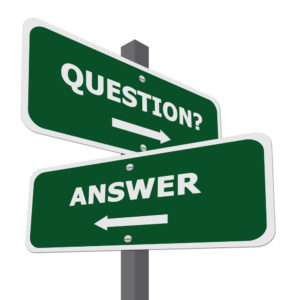
Cannabis Sativa
One of the oldest plants ever to be put to beneficial use, the cannabis plant has been cultivated by humans for well over 10,000 years. Like many plants, the cannabis plant grows numerous strains and varieties. Hemp and marijuana are two of those varieties. Collectively, they are all referred to as cannabis sativa.
You cannot tell a hemp plant from a marijuana plant with the naked eye. The simple way to explain the difference between hemp and marijuana is that marijuana plants have high levels of the mind-altering drug tetrahydrocannabinol, commonly known as “THC.” High levels are typically defined as more than 0.3 percent. Hemp, by contrast, cannot contain more than 0.3 percent THC.
Understanding CBD and THC
When most people talk about CBD (Cannabidiol), they speak in terms of the difference between CBD and marijuana. That isn’t actually the correct differentiation to focus on though. The important distinction is between CBD and THC.
Both CBD and THC are members of a chemical family called cannabinoids. Cannabinoids, in turn, are plants oils. Cannabis plants produce more than 100 versions of cannabinoids. All cannabinoids start out as a bit of sugar. That sugar moves around the plant enzymes which eventually changes the sugar’s identity. If the sugar hooks up with THC-a synthase, it becomes THC. If it hooks up with CBD-a synthase, it becomes CBD. The important lesson to learn from this is that both hemp and marijuana plants can make CBD.
In the hemp plant, however, THC synthase is genetically dormant so hemp can produce lots of CBD without producing THC. The converse is not always true. A marijuana plant can produce both CBD and THC. This is an important distinction when discussing the legality of CBD.
What Are the Benefits Associated with CBD?
Ironically, because of the legal status of cannabis plants with the U.S. federal government, it has been virtually impossible for researchers to study CBD and the numerous beneficial claims associated with the plant. What studies do exist, coupled with anecdotal evidence, suggests that CBD reduces anxiety and helps with addiction to opioids and marijuana. It may also offer sleep benefits to patients with multiple sclerosis, Parkinson’s disease and Huntington’s disease. The only thing it has been approved by the FDA for is the prevention of seizures.
The Legal Status of CBD
In a nutshell, if the CBD in a product was extracted from a marijuana plant, it’s illegal but if it came from a hemp plant it’s legal. Moreover, if the CBD product contains too much THC (usually defined as more than 0.3 percent), it’s also illegal.
The problem purchasing CBD products is that there is really no reliable way to know what you are purchasing. When tested, many CBD products found in stores have more than the allowable levels of THC. Sometimes this is due simply to how the cannabis plant grows and breeds. If not carefully monitored, two hemp plants can actually breed and become marijuana that is loaded with THC! Unlike most plants, cannabis plants are not hermaphrodites. Instead, they are almost always male or female, meaning they must “mate” with another plant through pollination. That can cause dormant genes to activate, changing a hemp plant that produces no THC to a marijuana plant that produces considerable levels of THC. Given how abundant cannabis is in the wild, hemp plants grown outdoors are always at risk of being unintentionally pollinated by a marijuana plant.
Added to the possibility of unintentional pollination by a marijuana plant is the risk of unreliable extraction of the CBD. The process for extracting THC and CBD is essentially the same. If a plant containing both THC and CBD is sent for extraction, and the extraction is not done properly, the final product could contain considerable amounts of THC.
Finally, the FDA has prohibited the sale of CBD in any unapproved health products, dietary supplements or food. Basically, this covers everything except for the drug Epidiolex which has been approved by the FDA for seizures. The work around for CBD product manufacturers though is that it is legal to sell CBD if the manufacturer doesn’t make any health claims about its products, put it in food, nor add it to dietary supplements.
Contact a Murfreesboro Criminal Defense Attorney
If you have additional questions or concerns about CBD in Tennessee, a Murfreesboro criminal defense attorney at Bennett, Michael & Hornsby may be able to help. Contact the team today by calling 615-898-1560 to schedule your appointment
- Elder Financial Exploitation: How to Protect Seniors - April 12, 2024
- How to Obtain Guardianship of a Minor in Tennessee - April 2, 2024
- Why You Don’t Want to Leave Behind an Intestate Estate in Tennessee - March 28, 2024




